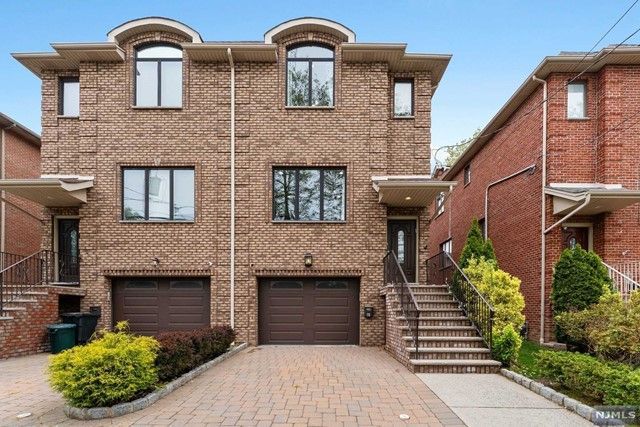Ready To Buy Real Estate? Here’s Everything You Need To Know!
Introduction
Buying your first home or venturing into real estate investment can be one of the most thrilling and financially rewarding decisions you ever make. This guide is designed to navigate through the complexities of the real estate market, ensuring you are well-informed and prepared. Whether you're looking to settle into your dream home or making a strategic real estate investment, here's what you need to know.
Understanding the Real Estate Market
The real estate investing landscape can vary greatly depending on whether it’s a buyer's or seller's market. Knowing which market you’re entering can significantly affect your strategy and decision-making process. Conducting thorough market research is crucial. Utilize online resources, market reports, and real estate investing blogs to get a sense of pricing trends and market dynamics.
Investment real estate is also about timing. By keeping an eye on economic indicators and staying updated through a real estate investing blog, you can better predict when to make your move.
Budgeting and Finance
Budgeting is the cornerstone of successful real estate investing. It’s important to determine what you can afford to avoid stretching yourself too thin. Exploring financing options is next: mortgages come in various forms, and choosing the right one can save you thousands.
Your credit score plays a pivotal role here. A higher score can lead to better loan terms and lower interest rates. For those looking at investment real estate, improving your credit score is a critical step.
Another aspect is the down payment. Saving for a substantial down payment often allows better loan conditions and lower ongoing payments, a crucial strategy for both personal home buying and realestate investing.
Lender Types: Understanding Your Options
When securing financing for real estate, choosing the right type of lender can influence both your experience and the terms of your loan. Here's a look at three common types of lenders:
Mortgage Banker
Mortgage bankers are typically large financial institutions like Chase or Bank of America. They offer the stability of well-known, established lenders with generally fair interest rates. However, their large size can sometimes make the service feel impersonal, as clients may feel like just another file on a desk.
Mortgage Broker
A mortgage broker acts as an intermediary between borrowers and lenders. They do not lend money directly; instead, they shop around to find you the best rates and terms from various lenders. This can often mean slightly higher rates due to brokerage fees, but brokers can access a wider range of products. After closing, your loan might be sold to another lender or enter the secondary market.
Direct Lender
Direct lenders provide funds directly to borrowers and may offer more personalized service compared to large banks. They combine the reliability of having direct access to funds with the flexibility of tailoring loan programs to fit specific needs. Direct lenders can often negotiate more effectively on loan terms and are considered a hybrid of brokers and bankers, offering the best of both worlds.

Choosing the Right Property
The type of property you choose—be it a condo, townhouse, or story house real estate—will depend on your lifestyle needs and investment goals. Location is paramount; consider factors like schools, commute times, and community amenities. Each property type has its benefits and challenges, especially when considering real estate investment for rental purposes.
The property’s potential for appreciation should also be a key consideration for real estate investing. Look for emerging areas or those with planned future developments that can boost property values.
The Buying Process
The process of buying a home can be daunting, especially for those new to real estate investing. Start by assembling a trustworthy team, including a real estate investment professional, a lawyer, and a home inspector.
Understand the importance of each stage—from making an offer to closing the deal. Each step will involve essential documents and legal checks, which your team should handle efficiently. Engaging a knowledgeable investment property realtor can streamline this process, ensuring all bases are covered.
Closing the Deal: Understanding the Costs

When you're ready to close on a real estate purchase, being aware of the various costs involved is crucial. Here's a breakdown of key expenses:
Home Inspection Costs
Home inspections are essential to ensure there are no hidden problems with the property. These typically cost between $500 and $1,000, depending on the property size and the depth of the inspection required. It's a critical investment for your peace of mind and to avoid unexpected repair costs later.
Legal and Title Costs
- Title Search and Insurance: This is necessary to verify the seller has a legitimate claim to the property and to protect you from future legal claims. Title search fees can range from $250 to $500, and title insurance rates typically vary from 0.5% to 1% of the purchase price.
- Attorney Fees: Hiring a real estate attorney can cost between $1,200 and $2,000 but is vital for navigating the legal complexities of real estate transactions and ensuring your interests are protected.
Mortgage Costs
- Appraisal Fee: Your lender will require a property appraisal to determine its value, costing between $300 and $500.
- Loan Origination Fees: These are charged by the lender to process your mortgage application and can vary widely, so it’s important to discuss these fees with your lender ahead of time.
Miscellaneous Costs
- Survey Costs: While not always required, getting a property surveyed can cost anywhere from $700 to $1,000+ and is recommended to confirm property boundaries.
- Pre-paid Utility & Tax Reimbursement: If applicable, you might need to reimburse the seller for pre-paid taxes or utilities.
- Homeowners Insurance: Required by lenders to protect the property against damage, the cost varies based on property value and coverage amount.
- Mansion Tax: In New Jersey, for example, any property purchase over $1 million incurs a "Mansion Tax" of 1% of the purchase price.
Potential Pitfalls and How to Avoid Them
FAQs
First-time homebuyers and novice real estate investors can make common mistakes, such as underestimating costs or overestimating returns. Be cautious of properties with pricing that seems too good to be true; always conduct thorough inspections to avoid costly repairs later.
Negotiation is another area where many new investors falter. Armed with solid market research and advice from an experienced investment property realtor, you can negotiate terms that are more favorable and reflective of the property’s true value.
Long-Term Considerations
Maintaining an investment real estate property requires time, effort, and money. Plan for regular maintenance and unexpected repairs. Additionally, understanding the ins and outs of property taxes, insurance, and other expenses is crucial for a sustainable real estate investment.
The long-term investment potential should always be considered. Whether you’re purchasing a primary residence or a property purely for realestate investing, think about how the value is likely to change over the coming years.
Section 1: Preparing Financially
Funding Your Purchase
- How will you fund your purchase?
The two core ways to fund real estate purchases are either cash or finance, via a mortgage loan. Understanding the pros and cons of each is crucial.Cash Purchases: Cash buyers are often seen as more attractive to sellers because they present less risk of transaction failure due to funding issues. If opting for a cash purchase, ensure you have proof of funds ready, such as financial statements or a bank letter.Mortgage Qualification: Before exploring the market, getting pre-qualified for a mortgage is vital. This step is essential in demonstrating your financial credibility to sellers, especially in competitive markets. Research and choose between different lender types for the best terms that fit your needs.
Conclusion
Purchasing real estate is a significant decision that should not be taken lightly. However, with the right knowledge and preparation, it can also be incredibly rewarding. We’ve covered everything from understanding the market to finalizing your purchase, providing a solid foundation for anyone ready to explore real estate investing.
What is real estate investment and why should I consider it?
Real estate investment involves purchasing property to generate income through rental yield, potential increases in intrinsic value, or profits generated from business activities on the property.
How do I know if it's a buyer's or seller's market?
Understanding market conditions involves analyzing current supply and demand, pricing trends, and economic indicators. Real estate investing blogs and market reports are valuable resources for this information.
What are the key financial considerations when investing in real estate?
Key considerations include budgeting, securing financing, managing down payments, and understanding the long-term financial commitments of property maintenance and taxes.
How can I improve my credit score for better loan terms?
Improving your credit score can be achieved by paying bills on time, reducing debt levels, and correcting any inaccuracies on your credit report.
What types of lenders are available for financing real estate investments?
The main types of lenders include mortgage bankers, mortgage brokers, and direct lenders, each offering different benefits for real estate financing.
What should I look for when choosing a property for investment?
Important factors include the property’s location, potential for appreciation, and suitability for the intended rental market or business use.
What are the typical closing costs involved in real estate transactions?
Closing costs can include home inspection fees, legal fees, title search and insurance, appraisal fees, and other miscellaneous expenses.
How can I avoid common pitfalls in real estate investing?
Common pitfalls can be avoided by conducting thorough due diligence, getting professional inspections, and ensuring adequate financial planning
What long-term factors should I consider when holding an investment property?
Long-term considerations include property management, maintenance costs, property tax rates, insurance costs, and the potential for property value changes.
How important is the role of a real estate investment realtor?
A real estate investment realtor can provide invaluable guidance throughout the buying process, from selecting the right property to negotiating and closing the deal.



WE SPECIALIZE IN: houses for sale in Paramus NJ, Paramus NJ Real Estate, Bergen County NJ Realtor, houses for sale in Wyckoff NJ, Wyckoff NJ Realtor, Westwood NJ Realtor, Franklin Lakes NJ Real Estate, Franklin Lakes NJ Realtor, Westwood NJ Real Estate, houses for sale in Ridgewood NJ, houses for sale in Franklin Lakes NJ, houses for sale in Bergen County NJ, Wyckoff NJ Real Estate, Paramus NJ Realtor, Ridgewood NJ Realtor, Bergen County NJ Real Estate, Ridgewood NJ Real Estate









